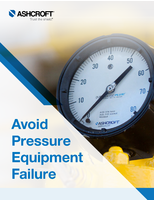ISPE Guide defines non-investigational medicinal products.
Share:
Press Release Summary:
ISPE Good Practice Guide: Harmonizing the Definition and Use of Non-Investigational Medicinal Products helps companies involved in clinical trials determine which medications qualify as non-investigational medicinal products. Document contains strategies for risk management as it relates to classifying, sourcing, and packaging NIMPs, and helps companies who operate studies in multiple countries devise risk management strategies that take into account country-specific rules/regulatory requirements.
Original Press Release:
ISPE Releases New Guidance for Definition and Use of Non-Investigational Medicinal Products in Clinical Trials
(TAMPA, FLORIDA, USA,) – ISPE, a leading authority on publishing best practices documents for the pharmaceutical industry, announced today that it has issued groundbreaking guidance to help companies involved in clinical trials determine which medications qualify as non-investigational medicinal products (or NIMPs). The document also contains practical strategies for risk management as it relates to classifying, sourcing and packaging NIMPs.
“Until now, there has been no clear guidance to help define NIMPs and their use. As a result, many pharmaceutical companies take a cautious approach and treat all study medications as investigational medicinal products. Since the regulatory requirements for IMPs are so much more stringent than for NIMPs, these companies are subjecting themselves to unnecessary complications and expense,” said Esther Sadler-Williams of Catalent Pharma Solutions, one of the Guide’s lead authors. “This guidance answers many of the questions surrounding what constitutes a NIMP versus an IMP, and gives practical advice for simplifying the use of NIMPs.”
The ISPE Good Practice Guide: Harmonizing the Definition and Use of Non-Investigational Medicinal Products helps companies who operate studies in multiple countries devise strategies for risk management that take into account country-specific rules and regulatory requirements. It clarifies issues related to NIMP supply chains and outlines how the sourcing strategy employed for NIMPs can impact a number of the manufacturing and clinical site aspects for the complete clinical trial.
The ISPE Good Practice Guide: Harmonizing the Definition and Use of Non-Investigational Medicinal Products is available for purchase on the ISPE website.
About ISPE
ISPE, the International Society for Pharmaceutical Engineering, is the world’s largest not-for-profit association serving its Members through leading scientific, technical and regulatory advancement throughout the entire pharmaceutical lifecycle. The 20,000 Members of ISPE are building solutions in the development and manufacture of safe and effective pharmaceutical and biologic medicines and medical delivery devices in more than 90 countries around the world. Founded in 1980, ISPE has its worldwide headquarters in Tampa, Florida, USA and offices in Brussels, Belgium, Singapore and Shanghai, China. Visit www.ISPE.org for more information.
For more information contact:
Danielle Hould
ISPE Communications Manager
Tel: +1-813-960-2105, ext. 277
email: dhould@ispe.org
www.ISPE.org Â




